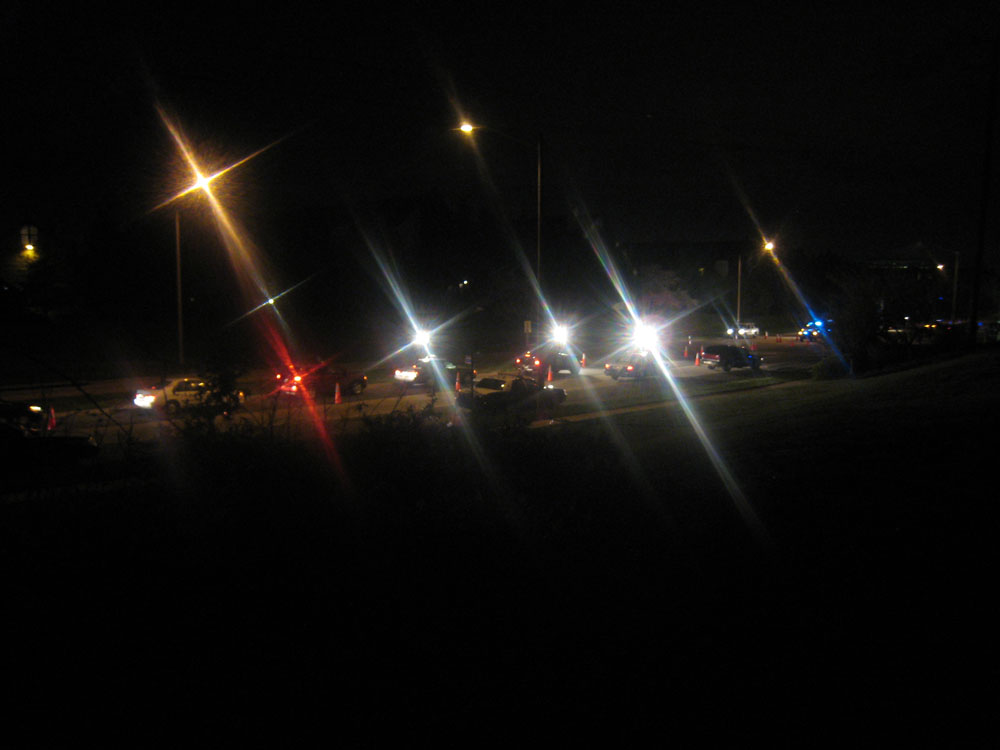
By Aaron Delgado
With recreational marijuana legal in 11 states and the District of Columbia and medicinal marijuana legal in some form in most other states, the number of marijuana-impaired drivers is bound to increase. To mount an effective prosecution and preserve the safety of the motoring public, law enforcement needs to find a standard device that can determine if the user is under the influence of marijuana’s main psychoactive ingredient known as THC at the time of a traffic stop. Law enforcement needs a scale or standard measurement determining the level of impairment akin to the “legal limit” of blood-alcohol volume.
But unlike alcohol, THC is not yet readily detectable by a portable machine nor in fluids, aside from urine or blood. So law enforcement ‘s capabilities are currently impaired.
The Intoxilyzer breath test machines currently in use throughout the country in drunk driving cases test a sample of deep lung air and measure blood-alcohol volume in the breath. The machine can be used with a minimal amount of training and technical skill. It’s not invasive like a blood draw or embarrassing like having to be watched while urinating. Results can be processed quickly and under any circumstance (you are always breathing, but not always needing to urinate), and without outside technicians.
Despite the main legal and scientific challenges to this machine and its “logic”, there is a compelling need for its use in detecting and prosecuting alcohol-impaired drivers. The legal “cut-off” or limit at beyond which a driver is presumed impaired is 0.08 grams of alcohol per 210 liters of air, or 0.08/210L. The validity of this number can be debated. But at least it’s a clear line of demarcation, and it applies in all states but Utah, where the limit since 2019 is 0.05.
But there is no similar technology to use to detect marijuana using drivers. And accurately detecting marijuana usage during a traffic stop is notoriously difficult. Unless smoked in the car or very recently, or carried on your person, marijuana doesn’t have the telltale odor of alcohol. Many preparations of marijuana are not smoked but ingested. Vaporizing can produce less distinct odor too.

The current means of detecting “drugged” drivers is to test their urine. The test may scientifically be more accurate than a breath test. But it also detects past usage for up to a month. So the test won’t tell you if the driver is actively under the influence of the drug. Rather, it points to uses in unknown amounts in an unknown period of time going back up to a month. The window of use could be narrowed down to the last 48 or 72 hours, but the defense is easy: defendants used the drug in the privacy of their home a week ago and are not “high” at the time of their police encounter.
In the past whatever indicated presence of drugs in the urine was damning and prejudicial since even marijuana was illegal. That’s no longer the case with marijuana legalized in so many forms in so many states, and medical marijuana legalized in Florida. Therefore, we must create a THC impairment scale so that we can (a) know at what point one should or should not drive after using marijuana and (b) enforce our DUI laws. Currently, no such scale exits.
A recent CNN article detailed the scientific quest for a THC testing device. But what may be a great scientific gadget must still pass legal muster. For example, an ideal THC testing machine would find a way to painlessly extract a blood sample for testing – like a blood glucose strip. But the legal protections for testing blood are too high for such a solution and justifiably so: there’s a tremendous amount of information contained in ones’ blood, not least one’s DNA.
Clearly, science is not yet able to replicate the alcohol testing in the cannabis arena. Even when the technology can do what it needs to be able to do, it’ll trigger extensive litigation on its accuracy, reliability and scientific underpinnings. There will need to be extensive administrative rules to determine how the machine is deployed, maintained, inspected and otherwise kept in service at the police department level. Lastly, the devices will face the same sort of legal challenges mounted against breathalyzers, including the quest for the device’s source code.
None of that means that a device should not be developed, perfected and deployed, because we do know that marijuana does impair driving. A frequent myth I hear is that “stoned drivers” are safer drivers, even safer than sober drivers. This is just not true, despite your college buddy’s insistence. Evidence does show marijuana impacts reaction time – driving several tons of metal at high speeds requires focus and attention and any distraction or impairment, be it texting, or THC should be curtailed. But the evidence is not as precise as that applied to alcohol-impaired driving.
 “There is evidence that marijuana use impairs psychomotor skills, divided attention, lane tracking, and cognitive functions,” a 2017 report to Congress by the National Transportation and Safety Administration concluded. “However, its role in contributing to the occurrence of 23 crashes remains less clear. Many studies, using a variety of methods, have attempted to estimate the risk of driving after use of marijuana […]. The methods have included experimental studies, observational studies, and epidemiological studies. While useful in identifying how marijuana affects the performance of driving tasks, experimental and observational studies do not lend themselves to predicting real world crash risk.”
“There is evidence that marijuana use impairs psychomotor skills, divided attention, lane tracking, and cognitive functions,” a 2017 report to Congress by the National Transportation and Safety Administration concluded. “However, its role in contributing to the occurrence of 23 crashes remains less clear. Many studies, using a variety of methods, have attempted to estimate the risk of driving after use of marijuana […]. The methods have included experimental studies, observational studies, and epidemiological studies. While useful in identifying how marijuana affects the performance of driving tasks, experimental and observational studies do not lend themselves to predicting real world crash risk.”
That a driver may falsely feel confident to drive compounds the issue. And the difficulty in detecting cannabis impairment through casual observation means less chance of a “designated driver” taking the keys. All in all, cannabis impairment has the potential to be every bit the problem that drunk driving is, particularly when compounded with the mistaken belief that one is a better driver “stoned.”
So, while I defend DUI defendants all the time, I urge everyone to be safe behind the wheel of a car regardless of what your drug of choice may have been. I have seen too many tragedies, on both sides of the steering wheel, to dismiss stoned driving as harmless. At the very least, it remains as illegal as drunk driving even if more easily defended by an experienced defense attorney.
In sum: while cannabis is rapidly being legalized throughout the United States, our impairment enforcement efforts are lagging behind. Law enforcement is not properly equipped to detect and prosecute the marijuana impaired driver. Currently methods are inaccurate, easily disputed and defeated. The result is uneven prosecution. Innocent drivers are being wrongly convicted. Impaired drivers are remaining undetected, posing a potential safety risk to everyone on the road.
![]()
Aaaron Delgado is a criminal defense attorney at Aaron Delgado & Associates in Daytona Beach, a member of the Daytona Beach City Commission and of the FlaglerLive Board of Directors.





























Jimbo99 says
So at the end of the day, it’s just safer to avoid activities that take you into a DUI checkpoint situation altogether. Can’t falsely detect if you aren’t there. They generally tell you what nights of the year DUI checkpoints happen and it’s generally on obvious holidays & roads near the bars. No drug abuse is always the best policy for anyone.
Danm50 says
Urine drug tests are just, welfare for testing labs, who are not regulated .The tests show you have cannabinoids in the blood. Does not prove 1 when the drugs were used2 how much was used or what the effects on different people using different stregths and quantities are…..
Munchie Mike says
If the driver is shoving Poppey’s chicken in his mouth and has 5 bags of M&M on the dash….he’s under the THC influence !!!
Katherine Stark says
So moral of the story is blaze up at night…when you have nothing to do & no where to go. Have your snacks in order so you can sit your butt home & be safe!
Dave says
Marijuana doesnt impair driving for regular users. Anytime I see someone driving the actual speed limit and using their blinkers ,I assume they are probably high. If anything it makes people better at driving because they are more alert and trying to make sure they are doing a good job.
Also We need the laws changed to not allow cops to search a vehicle simply for the smell of marijuana, now that its is legal medically, you cant help if grandma smells like cannabis when she gets in the car.
Jane GentileYoud says
Dave.. thanks for the laugh for a change… and ya betta believe Flagler County has lots of sniffing grandmas and grandpas …
Dave says
Wasnt being funny actually, and I dont see why my car should be searched just because some one used a legal substance before they entered my vehicle and made it smell like a marijuana.